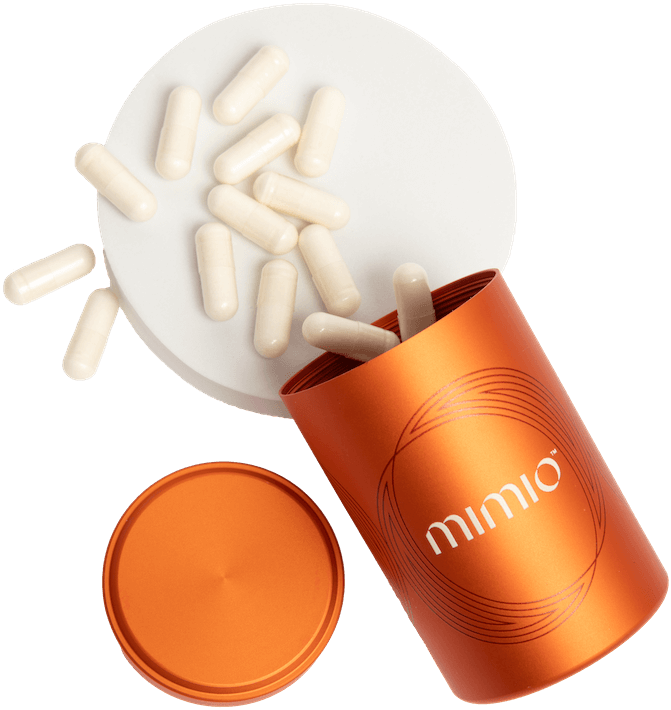We’ve all had those nights—tossing and turning, staring at the clock, wondering if we’ll ever fall asleep. And when morning finally comes, it feels like a freight train ran over us. Sound familiar? If so, it might be time to rethink your approach to sleep. Good news: building healthy sleep habits is totally doable! You just need a game plan.
Sleep doesn’t have to be elusive. With a few simple tweaks to your daily routine and some understanding of what makes good sleep, you can build healthy sleep habits that stick. Let’s dive into how you can transform your nights from restless to restful.
Healthy Sleep Habits for Optimal Wellness
Why Sleep Matters
Before we get into the how, let’s talk about the why. Sleep isn’t just about feeling alert and energetic—although that’s a big part of it. Healthy sleep habits are critical for your overall well-being. Research shows that proper sleep supports everything from brain function and mood to metabolism and immune health. It’s like the ultimate reset button for your body and mind.
When you’re well-rested, your cells have time to repair, your brain can process information better, and your mood? Let’s just say you’re far less likely to snap at the barista for messing up your order. On the flip side, chronic sleep deprivation can lead to a whole host of health issues—everything from weight gain and weakened immunity to poor mental health and increased risk of serious conditions like heart disease.
In short, sleep is your body’s way of taking out the trash and recharging for the next day. Let’s make sure you’re getting the good stuff.
1. Stick to a Sleep Schedule
One of the most effective ways to improve your sleep habits is to maintain a consistent sleep schedule. That means going to bed and waking up at the same time every day—even on weekends. Yes, even on weekends. Your body has an internal clock, also known as the circadian rhythm, and keeping it on a consistent schedule can make it easier to fall asleep and wake up naturally.
Pro Tip: Pick a bedtime that allows you to get at least 7-9 hours of sleep and stick to it like a Netflix binge.
2. Create a Bedtime Routine
Just like you have a morning routine (brush teeth, coffee, contemplate life choices), having a bedtime routine can cue your body that it’s time to wind down. This doesn’t have to be complicated—simple activities like reading a book, meditating, or sipping on a warm cup of herbal tea can help signal to your brain that it’s time to relax.
Here’s a quick idea for a bedtime routine:
- Dim the lights: Lowering the lights helps signal to your brain that sleep is near.
- Turn off screens: Phones, tablets, and TVs emit blue light, which can trick your brain into thinking it’s still daytime. Set an alarm to remind yourself to put away the screens at least 30 minutes before bed.
- Relax: Consider activities like stretching, deep breathing, or journaling to calm your mind.
3. Make Your Bedroom a Sleep Sanctuary
Your bedroom should be a haven for sleep—a place where relaxation happens and distractions are left behind. Start by optimizing your sleep environment. The right conditions can make a world of difference in your ability to drift off and stay asleep.
- Cool it down: Experts recommend keeping your bedroom temperature between 60-67°F (15-19°C) for optimal sleep.
- Keep it quiet: Noise can easily disrupt your sleep, so try using earplugs or a white noise machine if outside sounds are an issue.
- Darkness is your friend: Invest in blackout curtains or a good sleep mask to keep your bedroom dark. Light exposure can mess with your body’s production of melatonin, the hormone that regulates sleep.
If your mattress is older than your favorite hoodie, it might be time to upgrade. A supportive mattress and comfy pillows are essential for quality sleep.
4. Watch What You Eat and Drink
What you consume during the day can impact how well you sleep at night. While that midnight snack might sound appealing, eating too close to bedtime—especially heavy, fatty, or spicy foods—can lead to discomfort and disrupted sleep. The same goes for caffeine and nicotine, both of which are stimulants that can keep you awake.
On the flip side, there are some foods and drinks that can actually promote better sleep:
- Herbal teas: Chamomile, valerian root, and lavender teas can have a calming effect.
- Magnesium-rich foods: Leafy greens, almonds, and bananas contain magnesium, which can help relax muscles and promote sleep.
- Melatonin-boosting snacks: Foods like tart cherries and walnuts naturally contain melatonin, the hormone that helps regulate sleep.
Oh, and watch out for alcohol! While that nightcap might make you feel drowsy, alcohol can disrupt your sleep cycle and reduce the quality of your rest.
5. Move Your Body
Exercise is one of the best ways to improve your sleep. Regular physical activity can help you fall asleep faster and enjoy deeper sleep. Just make sure you’re not doing vigorous exercise too close to bedtime, as it can actually have the opposite effect and keep you wired.
Instead, aim for moderate exercise earlier in the day. Whether it’s yoga, a brisk walk, or a full-body workout, your body will thank you when your head hits the pillow.
6. Manage Stress
Stress and sleep aren’t exactly besties. If your mind is racing with to-do lists, worries, or just general overthinking, it can be tough to fall asleep. That’s why it’s crucial to find ways to manage stress and create a sense of calm before bed.
Incorporate relaxation techniques like:
- Deep breathing exercises: Focusing on your breath can help calm your nervous system.
- Meditation: Even just a few minutes of mindfulness meditation before bed can work wonders for clearing your mind.
- Progressive muscle relaxation: This technique involves tensing and relaxing different muscle groups to help relieve stress and tension.
If you still can’t seem to shut off your brain at night, try writing down your thoughts in a journal before bed. Sometimes putting your worries on paper can help you let go of them for the night.
7. Consider Natural Supplements
If you’re still struggling with sleep, you might want to consider natural supplements that promote better rest. Mimio’s Biomimetic Cell Care is designed to support your body’s natural rhythms, including sleep. It contains bioidentical molecules that help regulate your body’s cellular functions, which in turn can improve your mood, energy, and yes—your sleep patterns.
Melatonin, magnesium, and certain herbal supplements like valerian root are also commonly used to promote sleep. Just be sure to talk to your healthcare provider before adding any new supplements to your routine.
8. Be Patient and Consistent
Building healthy sleep habits won’t happen overnight (pun intended). It takes time for your body to adjust to new patterns and routines. Be patient with yourself and stay consistent. The more you stick to your new habits, the easier it will become to fall asleep and wake up feeling refreshed.
Healthy sleep habits are a key foundation for overall well-being. By creating a consistent routine, optimizing your sleep environment, and paying attention to your diet and lifestyle, you can build a sleep schedule that works for you. It’s not about perfection, but progress—so take it one night at a time. And if all else fails, you’ve got Mimio in your corner to support your journey toward better sleep and healthier living.
Mimio: Supporting Your Sleep from the Inside Out
While establishing good habits is crucial for healthy sleep, giving your body the right support on a cellular level can make all the difference in how effectively you rest. That’s where Mimio comes in. Mimio’s Biomimetic Cell Care is specifically designed to help your body mimic the health benefits of fasting, even when you're not fasting, and support your natural regenerative processes—including better sleep.
How does it work? Mimio contains bioidentical molecules to the ones your body produces during fasting, which help activate longevity bio-programs. These molecules enhance mitochondrial function, balance inflammation, and support overall cellular health—functions that are directly tied to improved sleep quality. By aiding your body’s ability to manage energy, mood, and metabolism, Mimio helps create the ideal conditions for restful, restorative sleep.
Why is this important for sleep? Poor cellular function can lead to imbalances in your body’s circadian rhythm, leaving you feeling wired when you should be tired and groggy when you should be alert. Mimio supports your cells’ ability to maintain balance and optimize their natural rhythms, making it easier for you to fall asleep, stay asleep, and wake up feeling refreshed. Plus, its anti-inflammatory properties help reduce the aches, pains, and stress that can interfere with sleep.
Incorporating Mimio into your daily routine can help you create a sleep-supporting environment from the inside out—because your cells deserve the best care, just like the rest of you.
Sleep tight!



